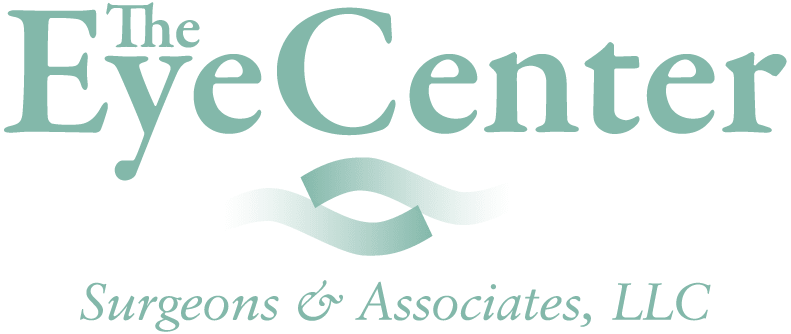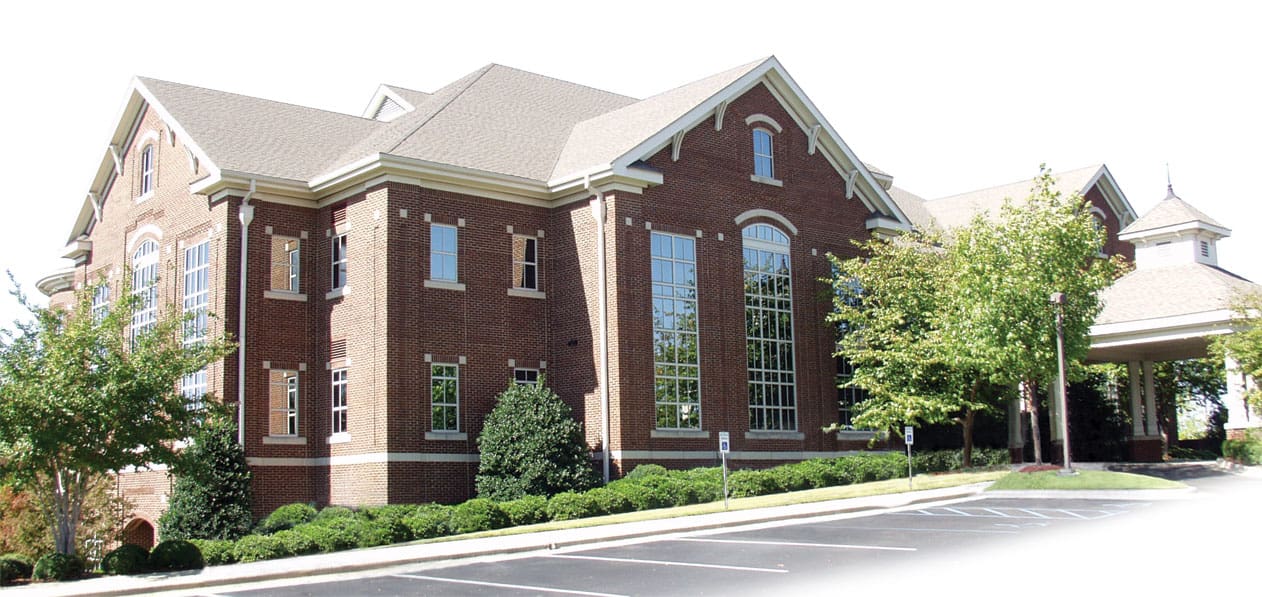Eye Exams
- Services
- Eye Exams
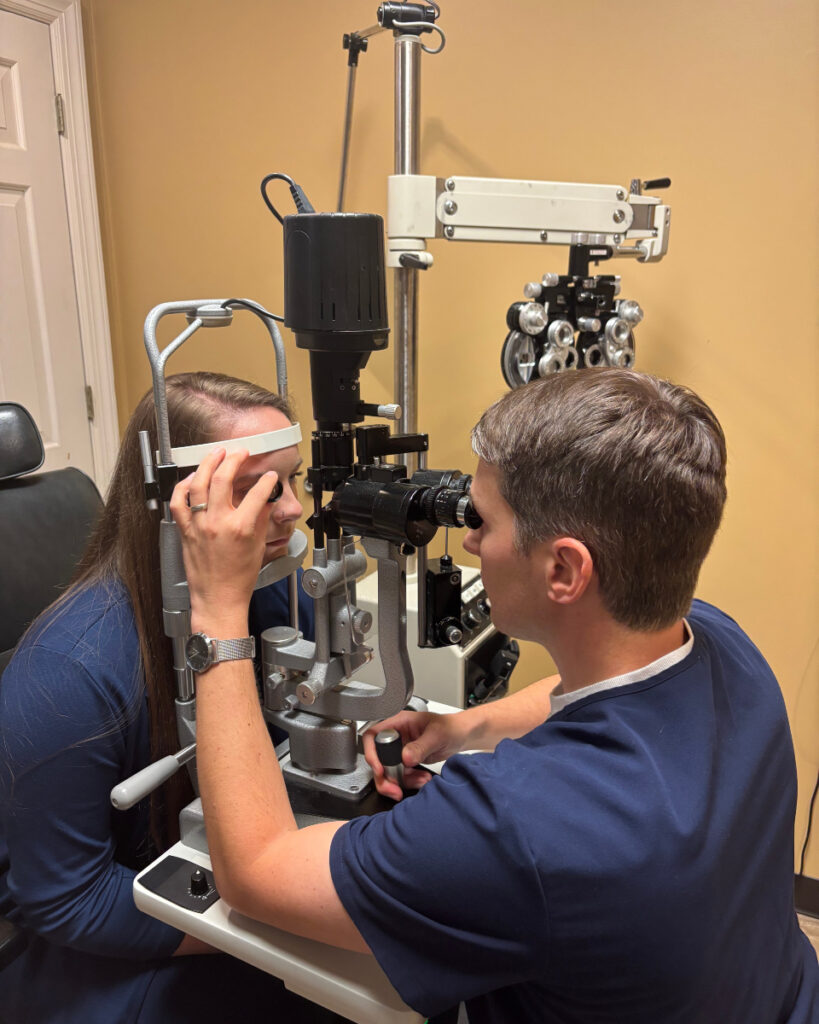
Medical Eye Exams
The Eye Center is equipped with the latest technology in diagnostic and examination equipment. This allows us to provide our patients with the most thorough, comprehensive eye examinations available.
We thoroughly check the internal and external health of your eyes including tests for cataracts and glaucoma. Our doctors also check for the presence of corneal disorders and will examine the retina to ensure proper health and continued good vision. We are currently accepting new patients.
Tests and Exams
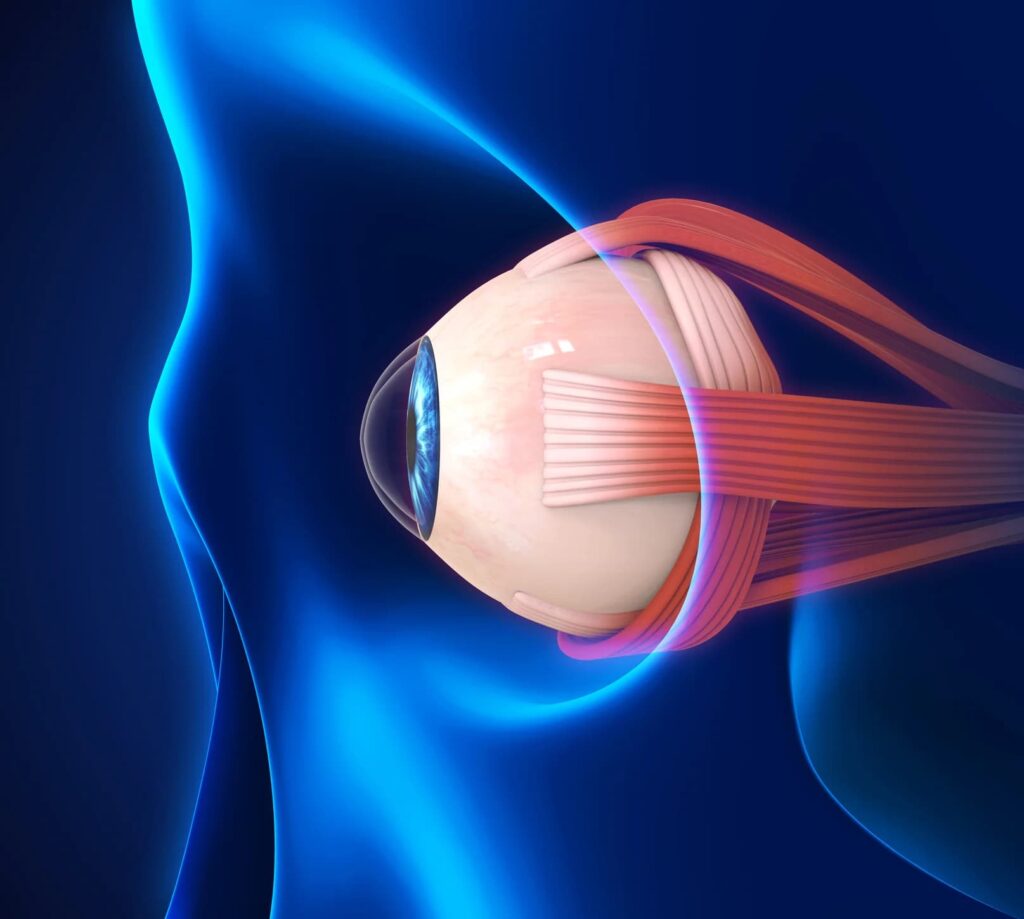
Causes and Symptoms
A clear transparent liquid called the aqueous humor flows through the inner eye continuously. This inner flow can be compared to a sink with the faucet turned on all the time. If the drainpipe gets clogged, water collects in the sink. If the drainage system of the eye gets similarly blocked, the fluid pressure within the inner eye is increased and can cause damage to the optic nerve.
Blockage of These Pipes Can Occur in Four Ways
- Most commonly, the “drainpipe” can become smaller with age, clogged by deposits which build up slowly. This partial blockage causes a gradual increase of pressure within the eye. This is known as chronic open-angle glaucoma because it develops slowly over a period of time. Most adult glaucoma patients have this type of glaucoma. Chronic open-angle glaucoma can steal vision so quietly that the patient is unaware of trouble until the optic nerve is badly damaged. Because no symptoms occur, the best way to diagnose this form of glaucoma is by periodic medical eye examination.
- The “drainpipe” may have been incorrectly “manufactured.” This type of defect is seen in congenital glaucoma, where the drainage openings are abnormal from birth. Since an infant’s eye has more elasticity than an adult’s when pressure inside the eye is increased, the easily stretchable eye may enlarge. The front of the eye may become cloudy like fog on a windshield. The infant may be sensitive to light and tear excessively. This is a rare condition. However, such symptoms or other suspicion of trouble in the eyes of an infant or child should lead to an immediate visit to an ophthalmologist.
- A sheet of paper may float near the drain, suddenly drop over the opening, close up the drainage area and block all outflow. In the eye, the iris may act like the sheet of paper and press up against the drainage area and close it off. Fluid backs up and increases eye pressure rapidly. Such a sudden, complete blockage of fluid flowing out of the eye results in acute angle-closure glaucoma. Blurred vision, severe pain, rainbow haloes around lights, nausea and vomiting should bring the patient quickly to an eye physician. Unless this condition is relieved promptly, blindness can result in a day or two
- Other conditions including injuries, certain drugs, hemorrhages, tumors and inflammations can sometimes block outflow channels in the eye. This may increase inner eye pressure and lead to secondary glaucoma.
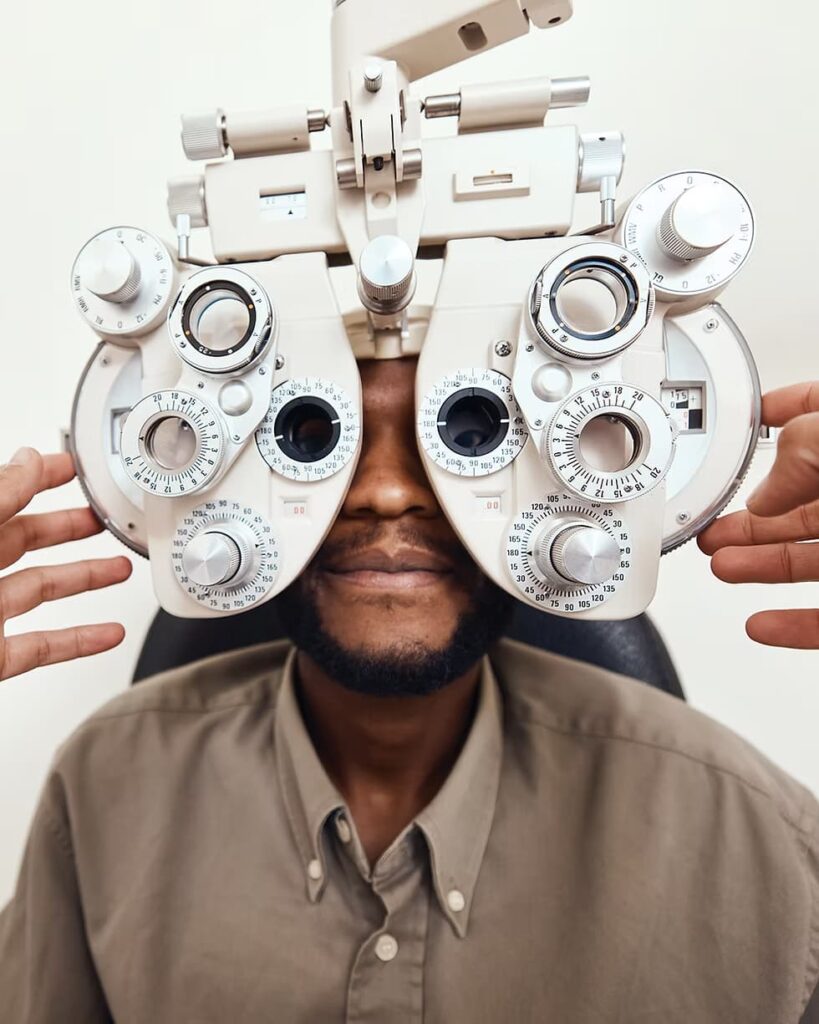
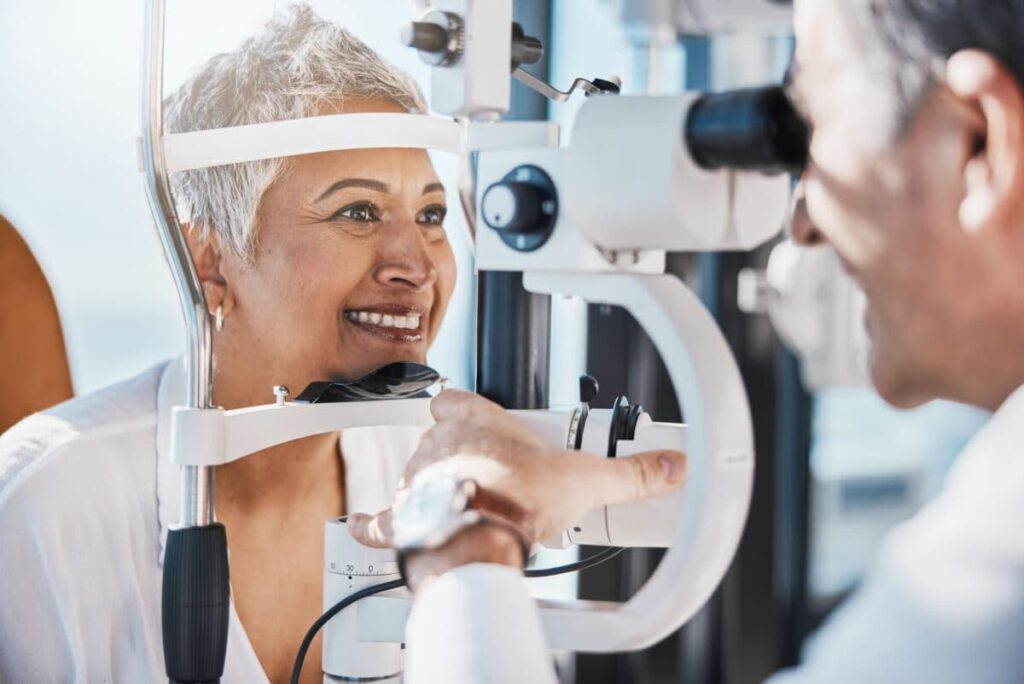


Medical Eye Exams
- Diabetes or high blood pressure affecting the eyes
- Glaucoma, macular degeneration, or cataracts
- Eye infections, allergies, or injuries
- Sudden changes in vision (flashes, floaters, double vision, loss of vision)
- Dry eye or other ongoing eye conditions
During a medical eye exam, the doctor may use special tests and equipment to closely examine the structures of your eye, check for disease, and discuss treatment options.
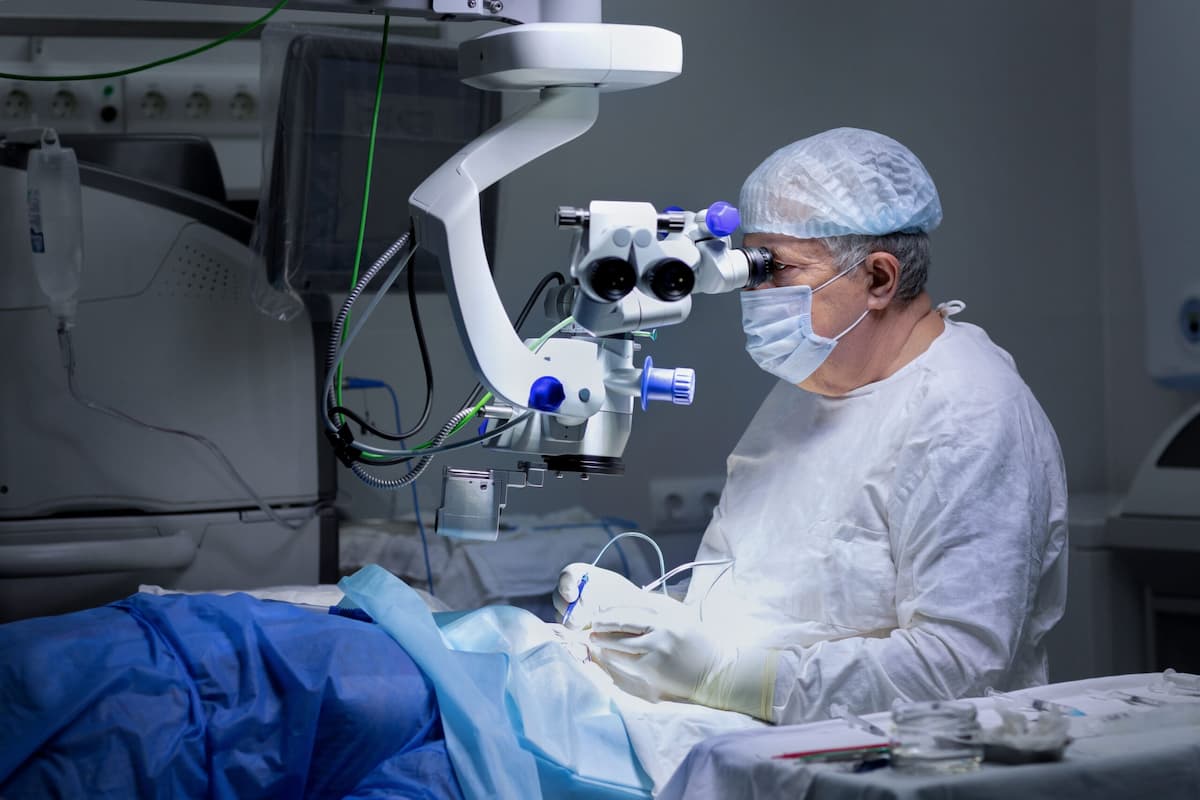
Treatment
Glaucoma is usually controlled with eye drops given 2 to 4 times a day or by pills given in various combinations. These medications act to decrease eye pressure either by assisting flow of fluid out of the eye or by decreasing the amount of fluid entering the eye. To be effective, these medications must be taken regularly and continuously.
Patients with any type of glaucoma need periodic examination. Glaucoma sometimes gets worse (or better) without the patient being aware of it, and as a result, treatment may need to be changed after a while. As a rule, damage caused by glaucoma cannot be reversed. Eye drops, pills and surgery are used to prevent further damage from occurring, and to preserve existing vision.
However, treatment may occasionally result in unwanted side effects. Some eye drops may sting redden the eye and cause blurring or occasional headaches. Such side effects usually disappear after a few weeks. Though rare, other drops may affect pulse, heartbeat and breathing. Pills sometimes cause tingling of fingers and toes, drowsiness, loss of appetite, bowel irregularities and occasional kidney stone formation. They are usually prescribed only when absolutely necessary. You should notify your ophthalmologist immediately if there is a question of possible side effects.
Why Routine Eye Exams Matter:
Regular eye exams help detect vision changes early, monitor overall eye health, and identify serious eye conditions such as glaucoma, cataracts, and diabetic retinopathy before symptoms appear.
Who Can Treat Glaucoma?
An ophthalmologist is the medical doctor (MD or osteopath) who is educated, trained and licensed to provide total care of the eyes, including the diagnosis and treatment of the many different types of glaucoma. Total eye care includes performing comprehensive medical eye examinations, prescribing corrective lenses, diagnosing diseases and disorders of the eye, and using the appropriate medical and surgical procedures necessary for their treatment. Only an ophthalmologist can provide total eye care.
Loss of Vision is Largely Preventable:
If you are over age 40, you should have your eyes checked for glaucoma every 2 to 4 years. If you are African-American and over age 20, you are at greater risk for glaucoma and should have your eyes checked every 3 to 5 years. Your ophthalmologist should be consulted whenever there is any decrease in vision or recurrent pain, or when any of the other symptoms discussed in this brochure are present. When diagnosed promptly, eye pressure can be brought under control and future glaucoma attacks can be prevented.
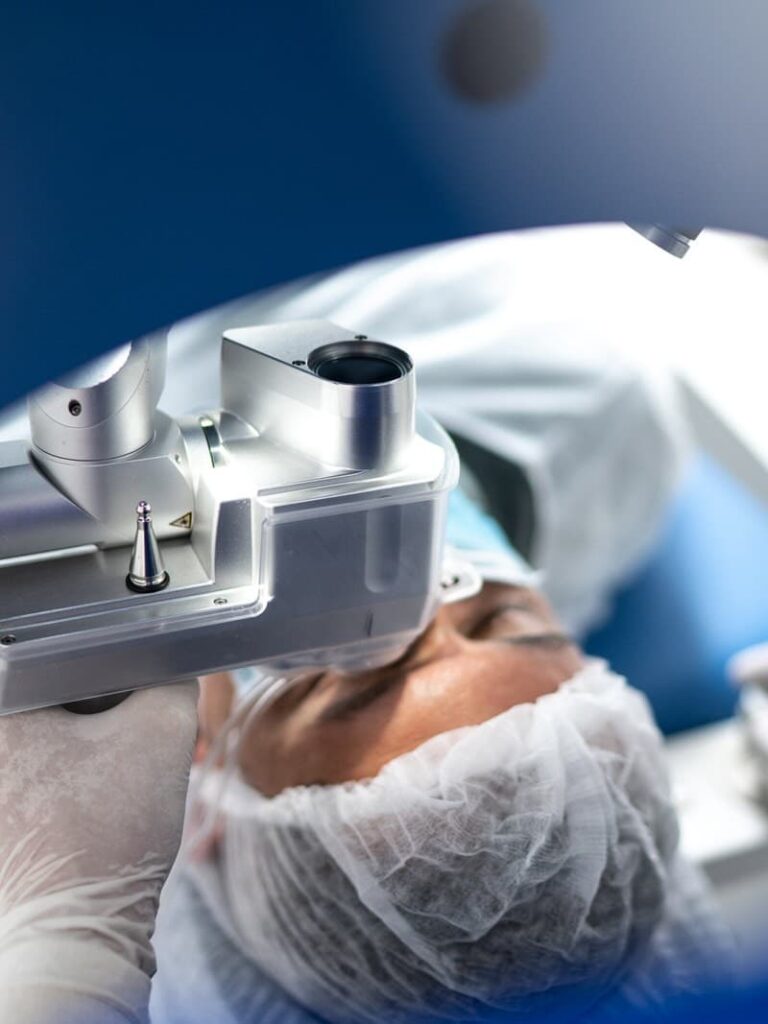
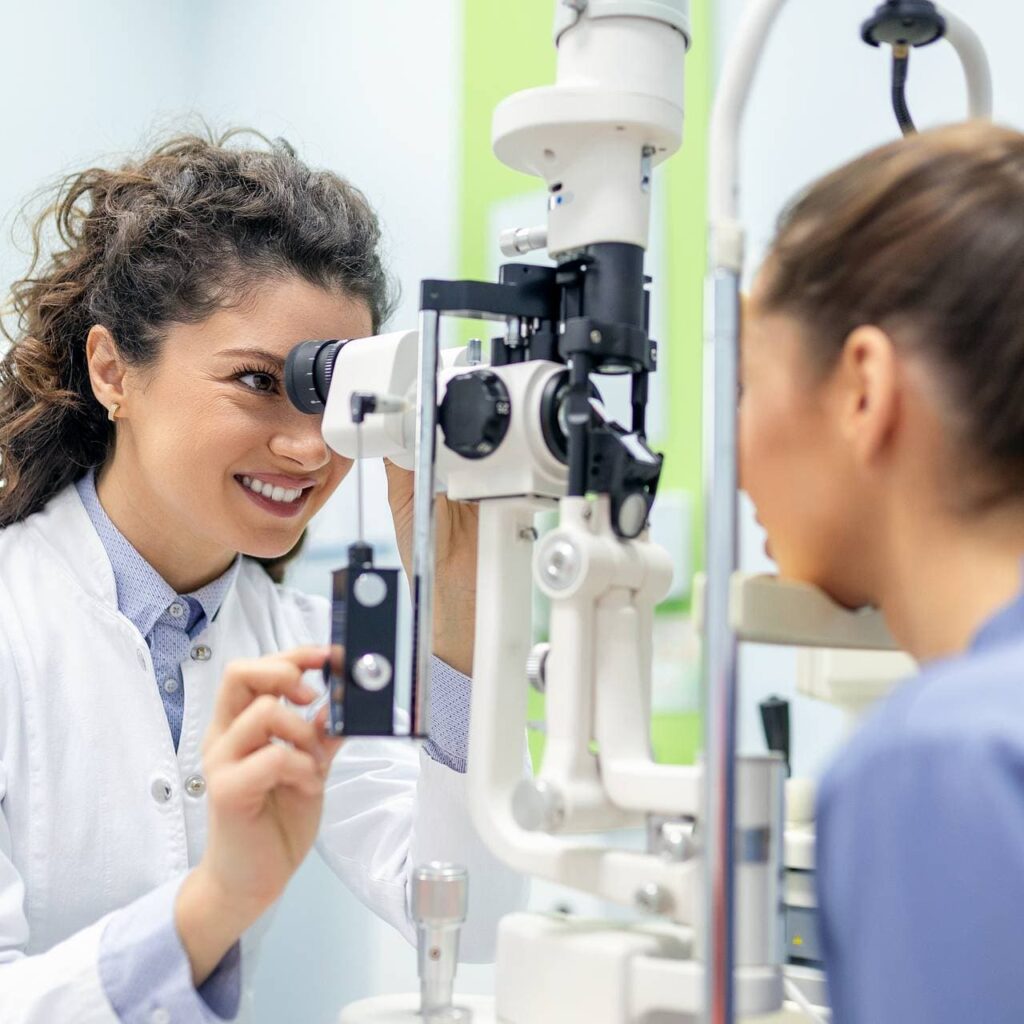



Huntsville
- 256.705.3950
- 256.533.3213

Madison
- 256.705.3950
- 256.533.3213
